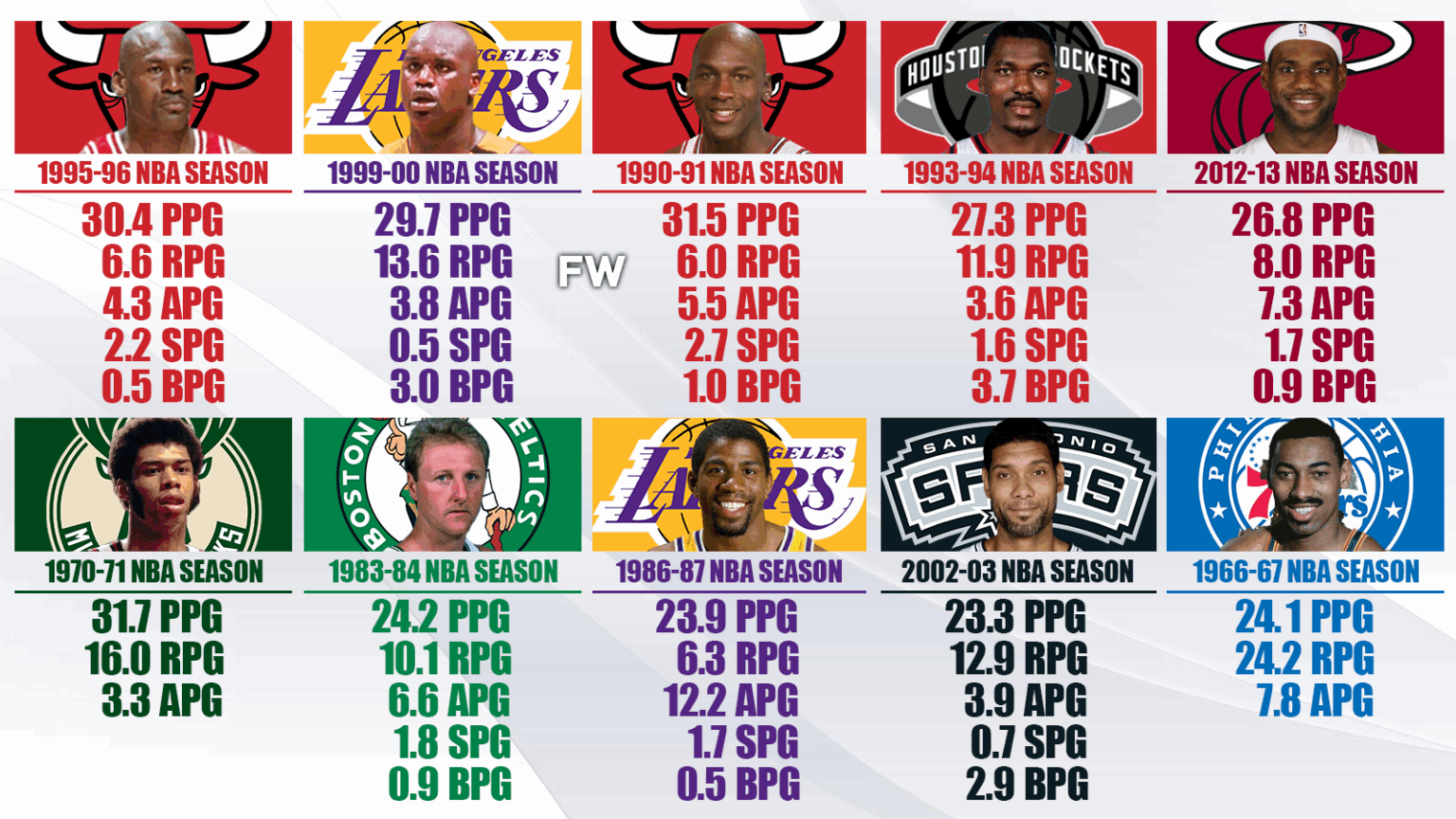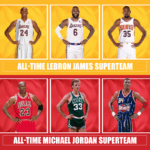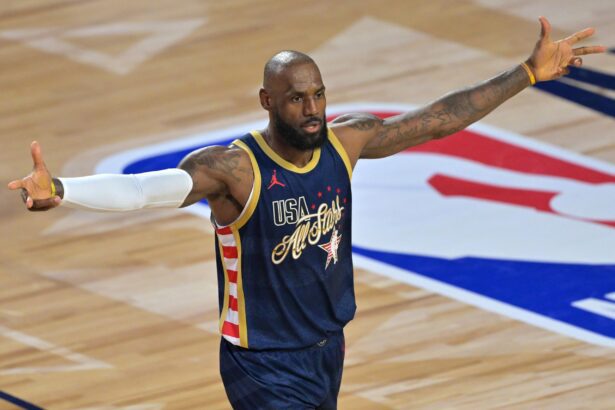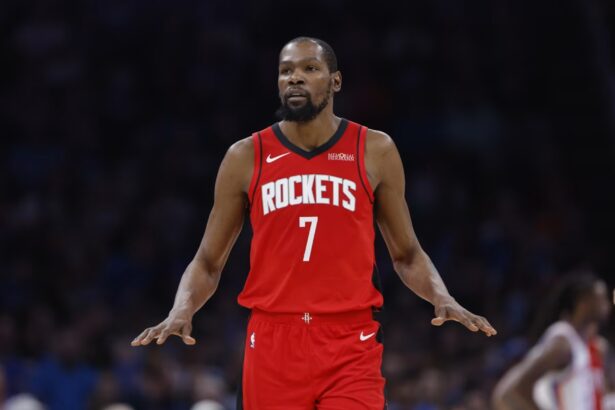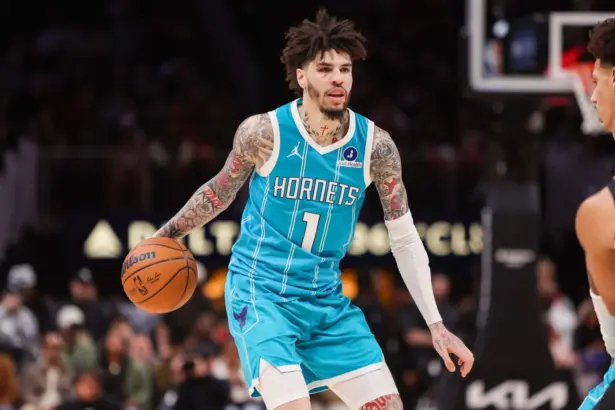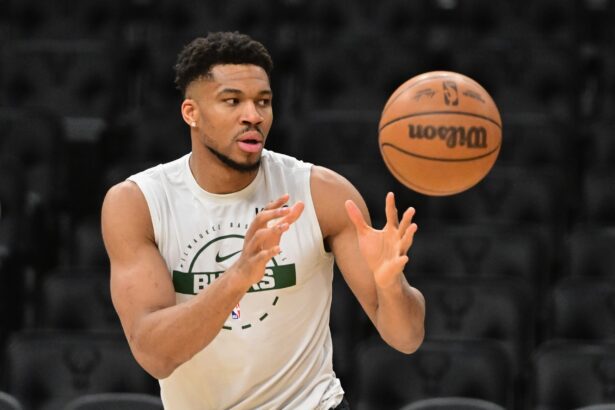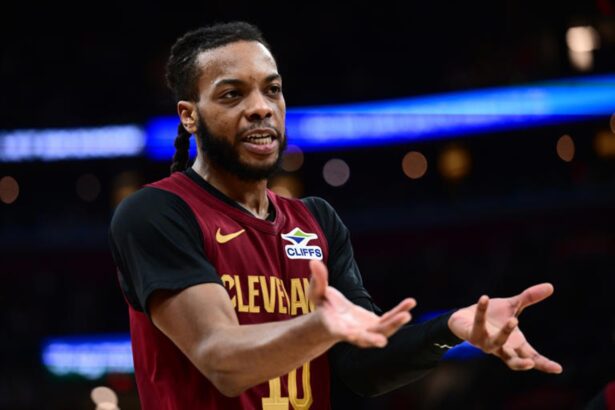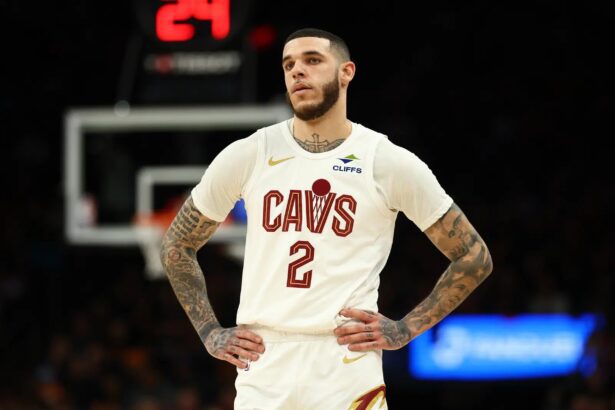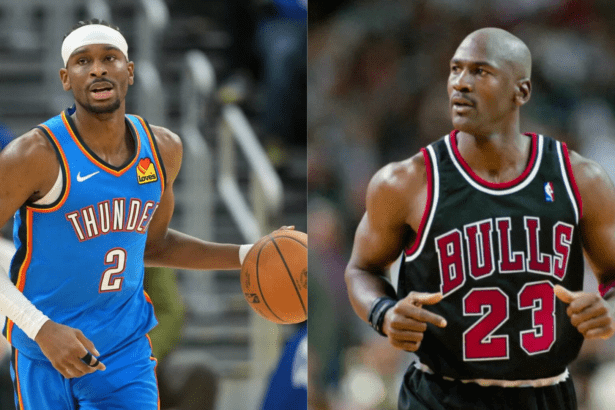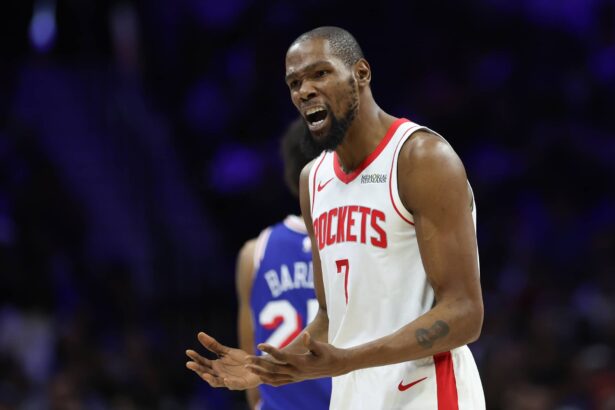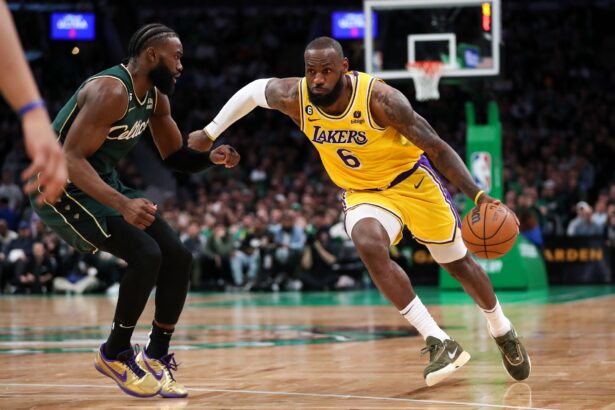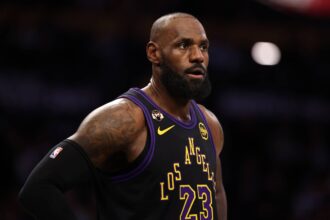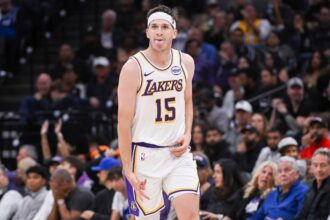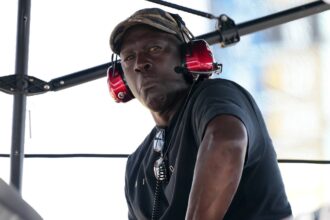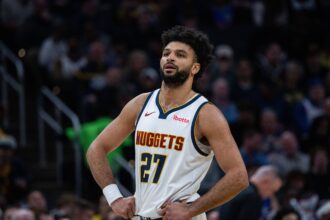When it comes to ranking the legacies of the greatest players in NBA history, we tend to nitpick as NBA fans and analysts, almost to a fault. No one criteria is ever the same because, well, most people are going to value different things or certain aspects of the game more than others. It is just natural. As human beings, we are never going to agree on things 100 percent, especially when it comes to the world of basketball.
That is the idea I would like you to keep in mind as we rank our top 10 greatest individual seasons in NBA history here today. As far as single seasons go, my criteria are centered around if that player went on to win an NBA championship and Finals MVP, first and foremost. Individual accolades, stats, and impact on team success are all important as well, but as the old saying goes, “It don’t mean a thing if you ain’t got that ring”.
Now, I realize not everyone is going to agree with that, and that is ok, but it also means that some tremendous seasons will be left out that were put forth by some of the greatest players in NBA history. No player is likely to ever average 50.0 PPG again in a season like Wilt Chamberlain did in 1962 but without an MVP award or an NBA championship, it does not make the cut here today. The same can be said for Stephen Curry’s unanimous MVP season in 2016. It was the greatest shooting display we have ever seen. A blown 3-1 lead in the NBA Finals hurt his case, in my opinion, and he barely misses out as well.
That’s enough about the seasons that just missed the cut. It is time to put my money where my mouth is and prove why there are 10 better seasons than those and so many more over the last 76 years. These are the 10 greatest individual seasons in NBA history.
10. Wilt Chamberlain – 1967
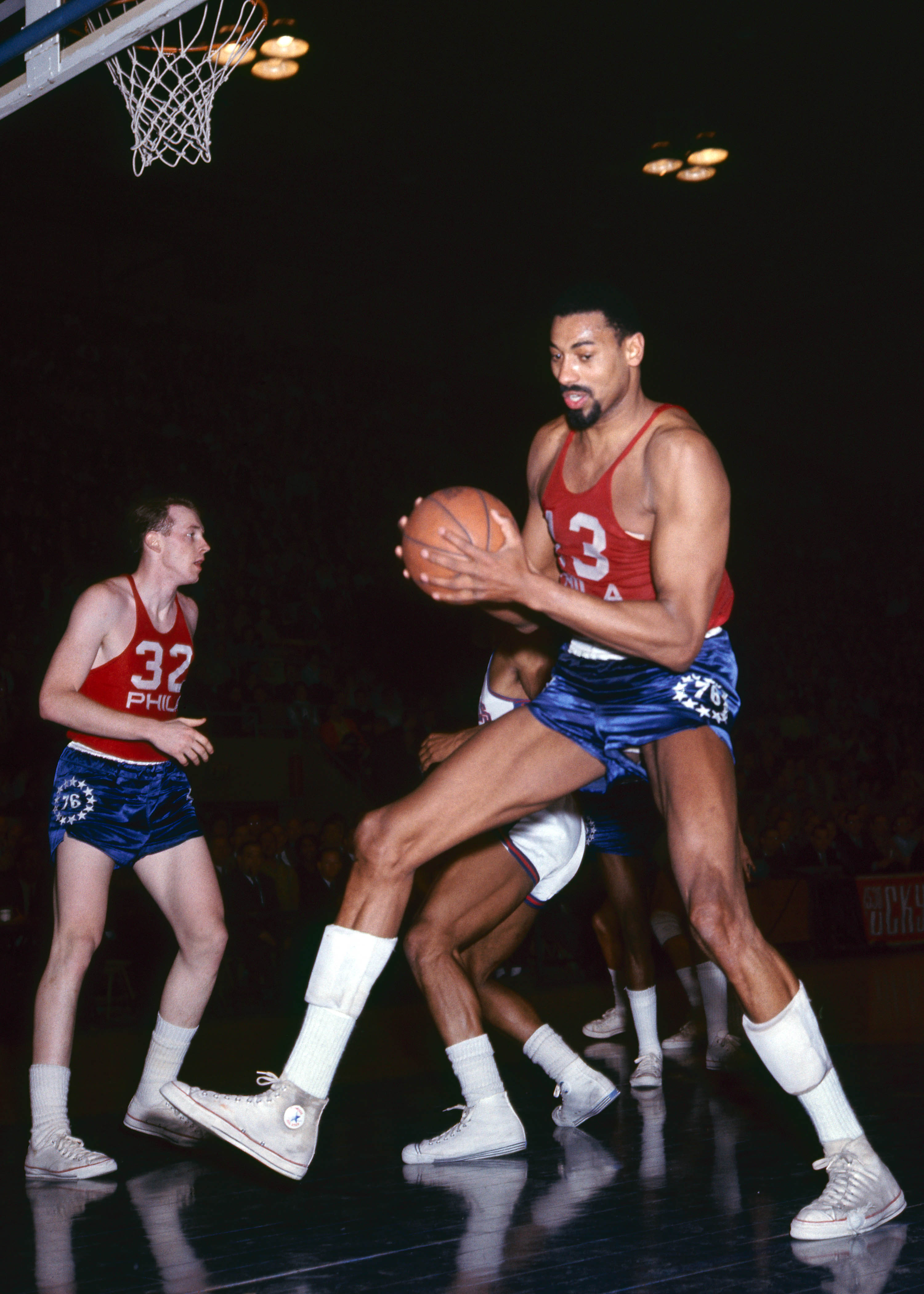
1966-67 Stats: 24.1 PPG, 24.2 RPG, 7.8 APG
Accomplishments: NBA Champion, MVP, All-Star, All-NBA First Team, Rebounds Leader
You didn’t think that one of the most statistically dominant players in NBA history was going to miss the list entirely, did you? Wilt Chamberlain had well more than one individual season worthy of consideration for this list, but none stuck out more than the masterpiece he put forth in 1966-67.
Chamberlain would win his second straight MVP award in 1967 in just his second full season with the Sixers after being traded from San Francisco. Wilt would average over 24.0 PPG as well as lead the NBA in rebounding with over 24.0 RPG to lead the Sixers to a 68-13 regular season record. Chamberlain would also lead the NBA in games played (81), minutes played (45.5), and field goal percentage (68.3%).
In the NBA playoffs, Wilt would be just as dominant, averaging 21.7 PPG, 29.1 RPG, and 9.0 APG in its entirety. After going 7-2 over their first two rounds in the playoffs, the Sixers advanced to the NBA Finals to play Chamberlain’s old team, the San Francisco Warriors. In that series, Chamberlain would average 17.7 PPG, 28.5 RPG, and 6.8 APG to lead the Sixers to the NBA championship. He also shot 56.0% from the field but only 30.6% from the foul line in the series. It was the perfect way to cap off an incredible season and kick off our list of the top 10.
9. Tim Duncan – 2003
2002-03 Stats: 23.3 PPG, 12.9 RPG, 3.9 APG, 0.7 SPG, 2.9 BPG
Achievements: NBA Champion, Finals MVP, MVP, All-Star, All-NBA First Team, All-Defensive First Team
Tim Duncan’s run as the greatest power forward in NBA history got started in just his second season in the NBA when he led the Spurs to their first NBA championship in 1999. In 2003, Duncan would help the Spurs begin a run that saw them win three NBA championships over the next five seasons, making them a dynasty and allowing Duncan to sit at the table with the greatest players to ever play the game.
During the regular season, Duncan would be among the best two-way players in the game as he recorded a career-high 237 blocks in 81 games played. He added 23.3 PPG as well as 12.9 RPG to lead the Spurs to a 60-22 record. He would be named MVP in a close race over fellow power forward Kevin Garnett, who would ultimately win his own MVP in 2004.
In the NBA playoffs, the Spurs would need just six games to defeat the Suns, Lakers, and Mavericks, led by Duncan’s 24.7 PPG, 15.4 RPG, and 3.3 BPG. In the NBA Finals, the Spurs were set to take on the New Jersey Nets, who were appearing in their second straight Finals series. Duncan would not be denied his second championship, however, as he averaged 24.2 PPG, 17.0 RPG, 5.3 APG, 1.0 SPG, and 5.3 BPG in the series to defeat the Nets in six and win his second Finals MVP. This included one of the greatest closeout games in NBA Finals history when he recorded 21 points, 20 rebounds, 10 assists, and 8 blocks in a 88-77 Game 6 win.
8. Magic Johnson – 1987
1986-87 Stats: 23.9 PPG, 6.3 RPG, 12.2 APG, 1.7 SPG, 0.5 BPG
Achievements: NBA Champion, Finals MVP, MVP, All-NBA First Team, Assists Leader
Over the years, Magic Johnson recorded numerous seasons that had to be considered for our list. Winning Finals MVP as a rookie in 1980 was up there on our list, as were the performances he put forth in 1982 and 1985. The one season that personified what he meant to the Los Angeles Lakers and their dynasty during the 1980s was the season he had in 1987.
In the regular season, Magic would average a career-high 23.9 PPG on 52.2% shooting from the field. He would also capture his fourth assists title with 12.2 APG while recording his third straight season with at least 900 assists. Behind this offensive output from their leader, the Lakers would win 65 games and cruise toward the NBA playoffs.
Magic Johnson would again lead the Lakers in the playoffs with 21.6 PPG, 7.7 RPG, 12.2 APG, and 1.7 SPG. The Lakers would lose just one game in their first three rounds of the playoffs as they got set for yet another showdown with Larry Bird and the Celtics in the NBA Finals. Magic would lead the Lakers in points, rebounds, assists, and steals in the series to capture his third Finals MVP award and fourth NBA championship. He averaged 26.2 PPG, 8.0 RPG, 13.0 APG, and 2.3 SPG to get the job done for L.A.
7. Larry Bird – 1984
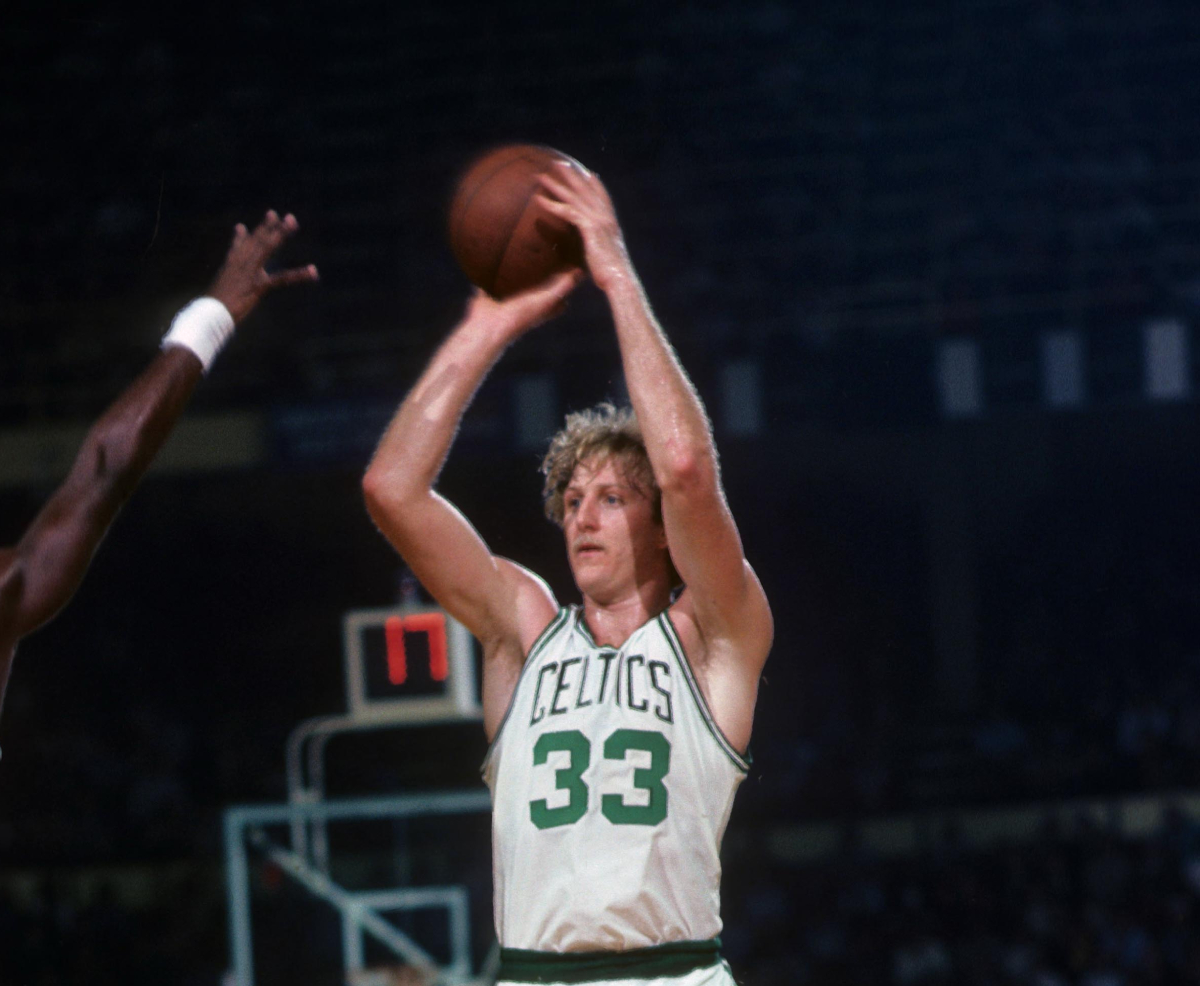
1983-84 Stats: 24.2 PPG, 10.1 RPG, 6.6 APG, 1.8 SPG, 0.9 BPG
Achievements: NBA Champion, Finals MVP, MVP, All-Star, All-NBA First Team, All-Defensive Second Team
We could have just as easily spun a wheel, and whichever of Larry Bird’s three consecutive MVP seasons from 1984 through 1986 it landed on would have been our choice. I promise you that isn’t what we did. No, instead, we decided to go with his first MVP win and first Finals MVP season as well.
Larry Bird’s fifth season in the NBA was a special one indeed. After earning his fifth straight All-Star appearance, Bird would average 24.2 PPG, 10.1 RPG, 6.6 APG, and 1.8 SPG to lead the Celtics to a 62-20 record. Bird would lead the NBA in free throw percentage at 88.8% on the season while also leading the NBA in Defensive Win Shares with 5.6. The Celtics looked like world beaters in the regular season led by the legend himself as they sought their second NBA title of the decade.
In the NBA playoffs, the Celtics would go 11-5 in the first three rounds to capture wins over the Bullets, Knicks, and Bucks. This set up a Finals rivalry between Bird and Magic Johnson of the Los Angeles Lakers. The series would be an epic one, going seven games until the Celtics were declared the winner in the end. Bird would win his first Finals MVP award averaging 27.4 PPG, 14.0 RPG, 3.6 APG, 2.1 SPG, and 1.1 BPG in the seven-game set. He also shot 48.4% overall and 66.7% from three in the series to hand the Lakers their second straight loss in the Finals.
6. Kareem Abdul-Jabbar – 1971
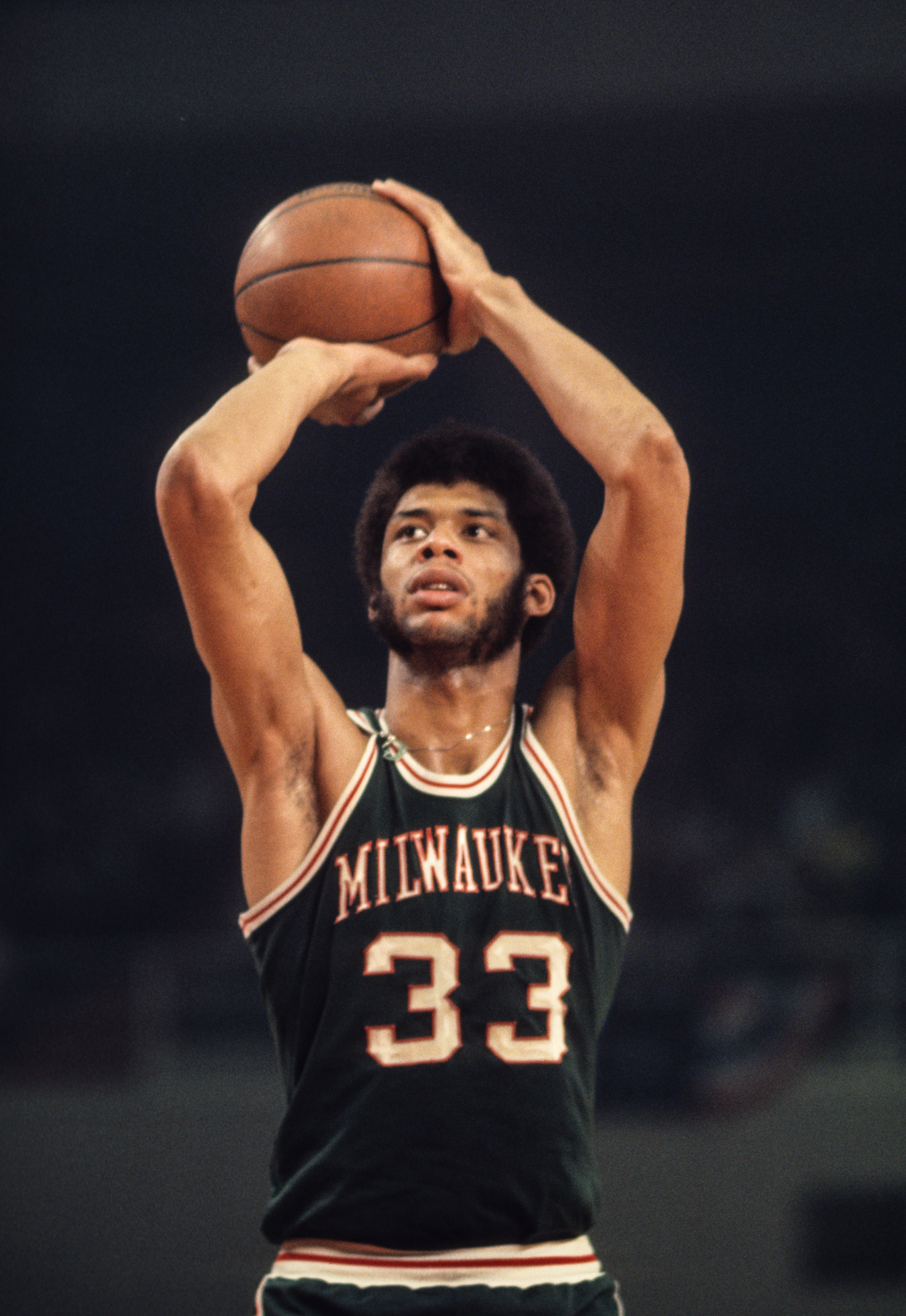
1970-71 Stats: 31.7 PPG, 16.0 RPG, 3.3 APG
Achievements: NBA Champion, Finals MVP, MVP, All-Star, All-NBA First Team, All-Defensive Second Team, Scoring Leader
Another NBA legend with a handful of seasons to choose from to land on this list is the great Kareem Abdul-Jabbar. The six-time MVP and NBA champion has a case to be on here more than once, but none of his seasons compare to the one he had in 1971 with the Milwaukee Bucks. It was Kareem’s second season in the NBA, and after a stellar Rookie of the Year campaign in 1970, he wanted more.
The regular season was incredible for Kareem, who won his first scoring title, averaging 31.7 PPG on 57.7% shooting from the field. Along with Oscar Robertson running point, Kareem would help lead the Bucks to a 66-16 record, with Kareem adding over 1,300 rebounds and 272 assists on the year. They looked simply unbeatable, which would almost hold true through the NBA playoffs.
In the playoffs, the Bucks, led by Kareem, would defeat each of the Warriors and Lakers in the first two rounds in just five games. The final task for Kareem would be to take down the Baltimore Bullets in the NBA Finals, which he and the rest of his team would make look easy. The Bucks would sweep the Bullets in four straight games behind a Finals MVP performance from Kareem that consisted of 27.0 PPG, 18.5 RPG, and 2.8 APG while shooting a blistering 60.5% from the field.
5. LeBron James – 2013
2012-13 Stats: 26.8 PPG, 8.0 RPG, 7.3 APG, 1.7 SPG, 0.9 BPG
Achievements: NBA Champion, Finals MVP, MVP, All-Star, All-NBA First Team, All-Defensive First Team
When looking back on LeBron James’ career, I always stand by my opinion that 2013 LeBron James is the greatest version of him that we have ever seen. His level of intensity on both sides of the ball as well as his control and grasp on the game itself was unmatched compared to any other point in his career, and he nearly pulled off the perfect season in the process.
During the regular season, James and the Heat were coming off their first championship together, which could have caused many to get complacent, but not LeBron. No, he went out there and made more shots than anyone in the NBA while being the runner-up for the Defensive Player of the Year award. His all-around stupendous play led to 66 wins for the Heat and their third straight trip to the NBA Finals.
After going 8-1 in their first two series during the playoffs, the Heat were able to squeak by the Pacers in seven games to advance to play the Spurs for the right to be called NBA champions. In the series, there would be an epic back-and-forth battle between both teams which led to a Game 7. In that Game 7, James would lead both teams in scoring with 37 points as well as 12 rebounds and four assists to capture his second straight NBA title and Finals MVP award. Overall for the series, James averaged 25.3 PPG, 10.9 RPG, 7.0 APG, and 2.3 SPG.
4. Hakeem Olajuwon – 1994
1993-94 Stats: 27.3 PPG, 11.9 RPG, 3.6 APG, 1.6 SPG, 3.7 BPG
Achievements: NBA Champion, Finals MVP, MVP, Defensive Player Of The Year, All-Star, All-NBA First Team, All-Defensive First Team
Hakeem Olajuwon’s back-to-back NBA championships are still talked about nearly 30 years later as some of the greatest basketball ever played by a big man in NBA history. As great as both seasons were, the 1994 season deserves more praise and recognition for the feat that it was, considering Olajuwon had no other All-Star help on the team.
In 1994, the NBA world was left in limbo as Michael Jordan walked away from the game just after leading the Bulls to three straight NBA titles. With the league wide open, Hakeem Olajuwon took matters into his own hands as he had to capitalize on the Rockets’ window to win now. Olajuwon would win both the MVP and Defensive Player of the Year awards in a landslide as he led the Rockets to a 58-24 record and a trip to the NBA playoffs.
During the playoffs, Olajuwon looked like a man possessed as he averaged 28.9 PPG, 11.0 RPG, 1.7 SPG, and 4.0 BPG over the course of 23 games. In the NBA Finals, the Rockets were set to take on the New York Knicks, led by a talented big man of their own, Patrick Ewing. In the series, the two teams would battle to a seven-game conclusion, with Houston prevailing 90-84 in Game 7. Olajuwon had won his first Finals MVP award behind a series in which he averaged 26.9 PPG, 9.1 RPG, 1.6 SPG, and 3.9 BPG.
3. Michael Jordan – 1991
https://www.youtube.com/watch?v=jcRuItRQ6_s
1990-91 Stats: 31.5 PPG, 6.0 RPG, 5.5 APG, 2.7 SPG, 1.0 BPG
Achievements: NBA Champion, Finals MVP, MVP, All-Star, All-NBA First Team, All-Defensive First Team, Scoring Leader
Michael Jordan is not your typical NBA superstar. He is the greatest superstar in the history of the NBA. During the 1990s, there was simply nobody better in the NBA, and the rest of the league knew it. After years of early exits at the hands of the Pistons, Celtics, and Bucks, Michael Jordan would finally get his chance at greatness during the 1990-91 season.
In the regular season, Jordan would win his fifth straight scoring title, averaging 31.5 PPG on 53.9% shooting from the field. He would also lead the NBA with 82 games played, 990 made shots, and 2,580 total points. The Bulls would win 61 games that season behind Jordan’s leadership and head strong into the NBA playoffs.
In the playoffs, Jordan would average 31.1 PPG, 6.4 RPG, 8.4 APG, 2.4 SPG, and 1.4 BPG to lead the Bulls as they went 11-1 in their first three rounds, including a 4-0 sweep of the Detroit Pistons. In the NBA Finals, fans were treated to a series between two icons, Michael Jordan and Magic Johnson. In that series, nobody on the court would be a match for Jordan as he and the Bulls defeated the Lakers in five games.
Jordan would earn his first Finals MVP that season behind 31.2 PPG, 6.6 RPG, 11.4 APG, 2.8 SPG, and 1.4 BPG. We all witnessed as Jordan finally broke through and rose to the top. Little did we all know, he wasn’t even close to finished.
2. Shaquille O’Neal – 2000
1999-00 Stats: 29.7 PPG, 13.6 RPG, 3.8 APG, 0.5 SPG, 3.0 BPG
Achievements: NBA Champion, Finals MVP, MVP, All-Star, All-Star Game MVP, All-NBA First Team, All-Defensive Second Team, Scoring Leader
During the early 2000s, we have never seen a more dominant player than Shaquille O’Neal at this time. O’Neal was a force that no opponent could tame in the paint, and when he got going or had you in a blender with his spin move, it was the best business decision to just get out of the way.
In the regular season, O’Neal would nearly complete the perfect season with every MVP award to be offered and an All-Defensive Second Team selection. O’Neal would win the scoring title with 29.7 PPG on an NBA-leading 57.5 % shooting. He would also lead the NBA in made shots and free throw attempts, although we all know how that worked out from the foul line.
As O’Neal and the Lakers head to the NBA playoffs with a 67-15 record, many didn’t think they could lose. They would be tested in the first three rounds but ultimately advanced to the NBA Finals against the Pacers after defeating the Kings, Suns, and Trail Blazers. Overall in the playoffs, Shaq would average 30.7 PPG, 15.4 RPG, and 2.4 BPG. In the NBA Finals, Shaq and the Lakers made easy work of the Pacers in six games, with O’Neal claiming his first NBA title and Finals MVP award. O’Neal had one of the highest-scoring series by an MVP, with 38.0 PPG, 16.7 RPG, and 2.7 BPG. As we all know, O’Neal was just getting started as well.
1. Michael Jordan – 1996
https://www.youtube.com/watch?v=rsNiCwlryIg
1995-96 Stats: 30.4 PPG, 6.6 RPG, 4.3 APG, 2.2 SPG, 0.5 BPG
Achievements: NBA Champion, Finals MVP, MVP, All-Star, All-Star Game MVP, All-NBA First Team, All-Defensive First Team, Scoring Leader
The greatest individual season in NBA history has to belong to the greatest individual player in NBA history, and that player is Michael Jordan. After coming back for 17 games in 1995 and losing in the playoffs, the Jordan mentality kicked in for the next season, leading to basketball history. Michael Jordan would win his eighth scoring title with 30.4 PPG, but more importantly, his team would win 72 games in one of the most dominant team showings in NBA history.
Michael Jordan was back and this spelled trouble for the rest of the NBA.
The NBA playoffs came around with the Bulls locked as favorites despite the season before looming in the back of their minds. In wins over the Knicks, Heat, and Magic, the Bulls would lose one game while winning 11 and advancing to the NBA Finals once again. For the entirety of the playoffs, Jordan averaged 30.7 PPG, 4.9 RPG, 4.1 APG, and 1.8 SPG to lead the Bulls.
The NBA Finals would prove to be tough as Jordan sought his fourth NBA title and Finals MVP against the rugged Seattle SuperSonics. The series would be a battle, but the Bulls prevailed in six games in the end, led by their star. In the six games, Jordan averaged 27.3 PPG, 5.3 RPG, 4.2 APG, and 1.7 SPG to defeat Seattle and get past the tough tandem of Gary Payton and Shawn Kemp. The historic regular season record, MVP, comeback after 1995, and NBA championship make Michael Jordan’s 1996 season the greatest season by any player in NBA history.
We sincerely appreciate and respect you as a reader of our site. It would help us a lot if you follow us on Google News because of the latest update.
Thanks for following us. We really appreciate your support.

